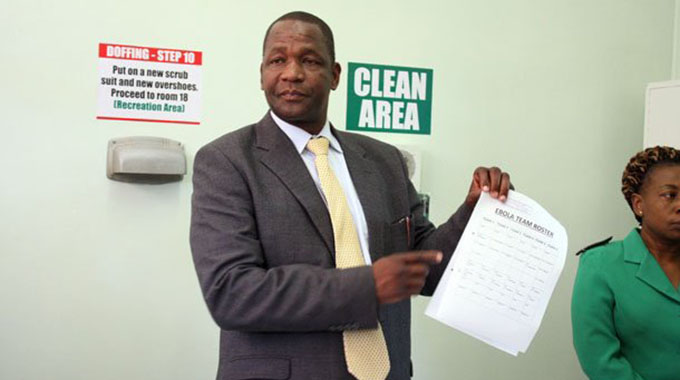. . . . diarrhoea outbreak hits Glen View, Budiriro

Paidamoyo Chipunza Senior Health Reporter
About 80 cases of diarrhoea have been reported in Harare’s western suburbs in the past week alone, 34 of which were suspected to be typhoid.
This was said by City Health Director Dr Prosper Chonzi (pictured right) in an interview with The Herald yesterday.
He said the majority of the cases were reported in Glen View and Budiriro suburbs.
Dr Chonzi attributed the upsurge in cases to the poor water and sanitation situation in the affected areas.
“The water and sanitation situation is still dire,” he said. “There hasn’t been water for the past three days and residents are relying on shallow and unprotected water sources, which increase their risk of contracting diarrhoeal diseases.”
Dr Chonzi said the City Health Department was worried that if the situation remained unchanged, the cases could increase and turn into a major outbreak.
The risk of other water-borne diseases such as typhoid could also increase.
Dr Chonzi said from the cases reported, 34 presented with signs and symptoms of typhoid, though laboratory tests could not confirm it.
“They tested negative because most of them could have taken antibiotics before reporting to a health facility, hence we could not confirm whether it was typhoid or not,” he said. “However, some presented with typhoid-like symptoms.”
Dr Chonzi said the last confirmed case of typhoid was reported on June 15 this year.
He said health promoters were already on the ground, raising awareness among the community to seek treatment once they start having diarrhoea or related symptoms.
He said diarrhoea treatment was free at all council clinics, for all age groups.
Dr Chonzi emphasised the need for residents to practise good hygiene to preventdiarrhoal diseases.
He called on residents to wash their hands and boil water from any source before consumption.
“We are all aware of the fact that issues of hygiene, water and sanitation, provision of safe, adequate water and timely refuse collection are of great importance if we are to avert these continued cases of diarrhoeal diseases,” said Dr Chonzi.







Comments